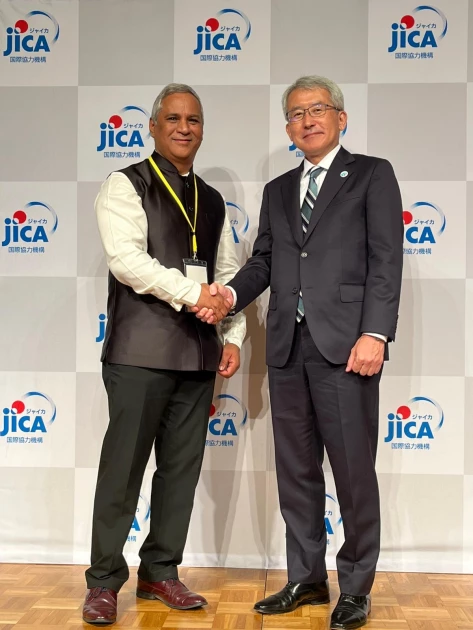JICA invests USD 40 million in Aavishkaar Capital’s global supply chain support fund

Vineet Rai, Founder, Aavishkaar Group and Managing Partner, Aavishkaar Capital and Mikio Hataeda, JICA’s Senior Vice President.

Audio By Vocalize
The announcement was made by Japanese Prime Minister Shigeru Ishiba during the Economic Partnership in Indian Ocean - Africa Forum, held alongside the Tokyo International Conference on African Development (TICAD 9) in Yokohama.
The fund, managed by Mumbai-based Aavishkaar Capital, provides credit to private companies operating in international supply chains in sectors such as agriculture, food processing and manufacturing. The financing is targeted at small and medium-sized enterprises (SMEs) that contribute to social and environmental development.
The Global Supply Chain Support Fund was established in partnership with Germany’s development bank KfW and is Aavishkaar Capital’s eighth fund. It focuses on emerging corporates in the global south, offering non-dilutive financing to support businesses with climate and social impact. The fund has already made eight investments across Asia and Africa.
JICA Senior Vice President Mikio Hataeda said the investment builds on the agency’s long-standing collaboration with Aavishkaar in India. “By investing in the fund and entering a new chapter of collaboration with the Aavishkaar Group, we hope to elevate the India-Japan partnership and strengthen our commitment to impact investment in Africa and Asia,” he said.
Aavishkaar Group founder Vineet Rai welcomed the move, describing it as an extension of Indo-Japanese economic cooperation aimed at advancing sustainable growth opportunities for SMEs.
Ashish Patel, Managing Partner for Credit at Aavishkaar Capital, said JICA’s involvement will help address the shortage of debt financing for SMEs in Africa, particularly in agriculture and essential services.
According to Aavishkaar Capital, the investment will support its expansion into African and Asian markets and back enterprises creating jobs, improving livelihoods and advancing climate resilience.


Leave a Comment